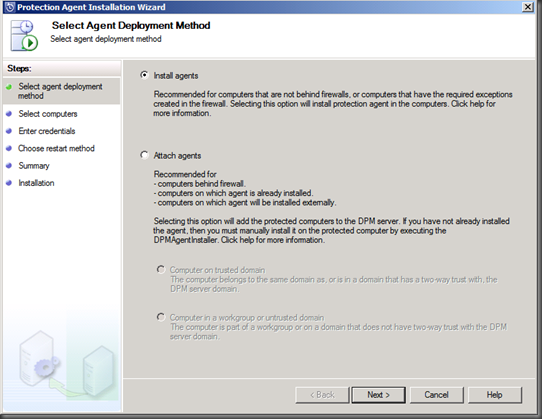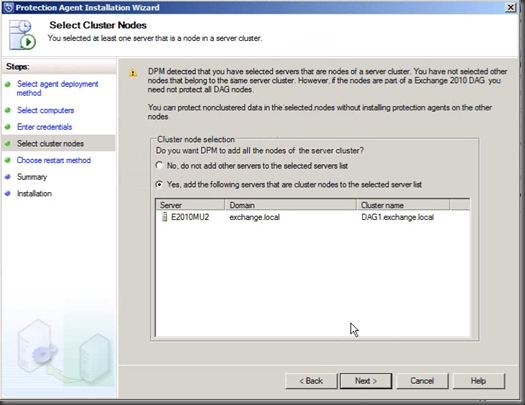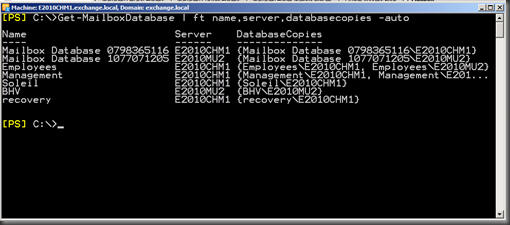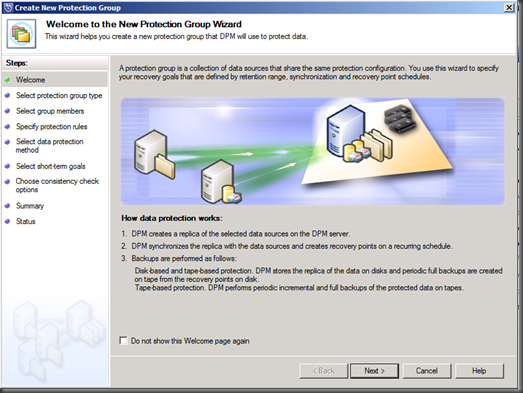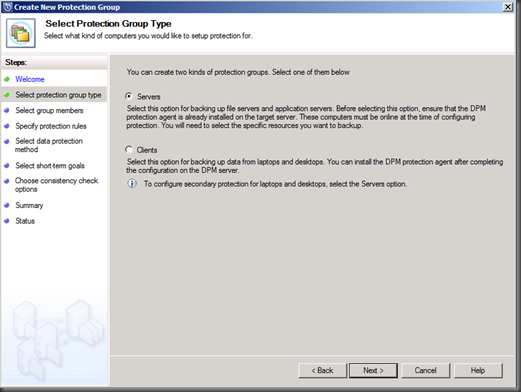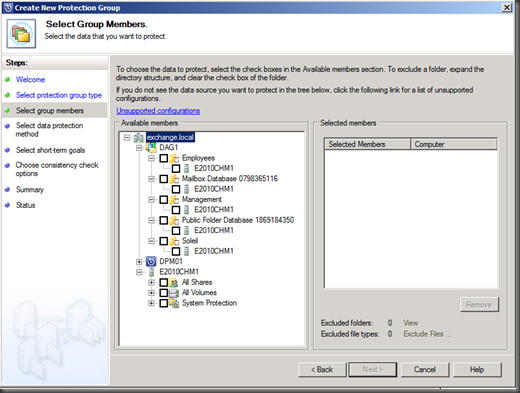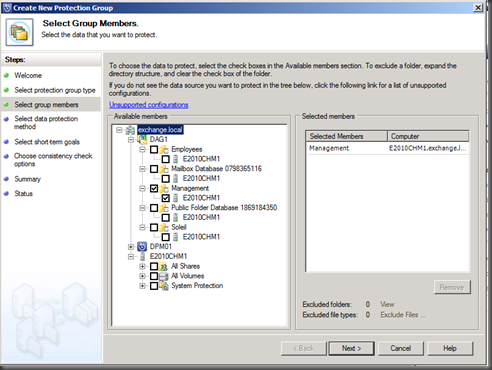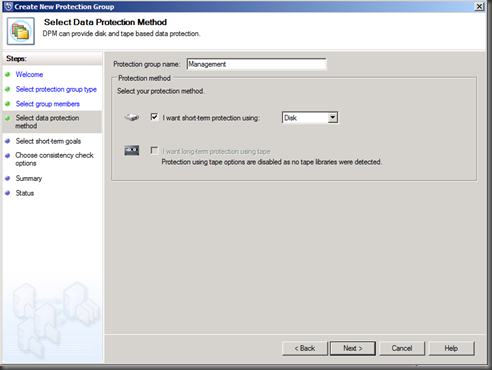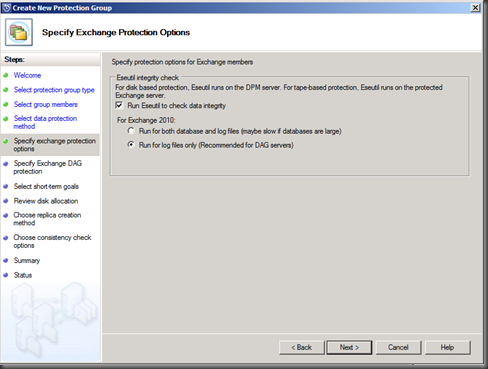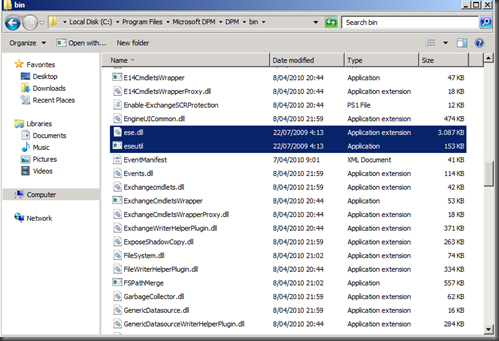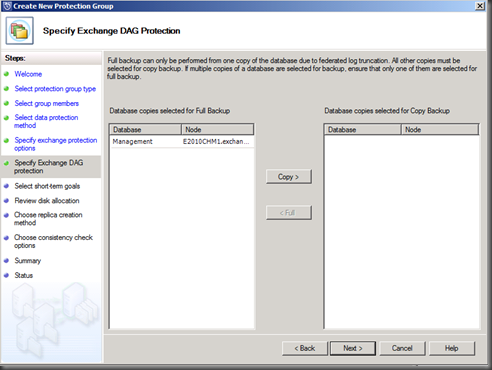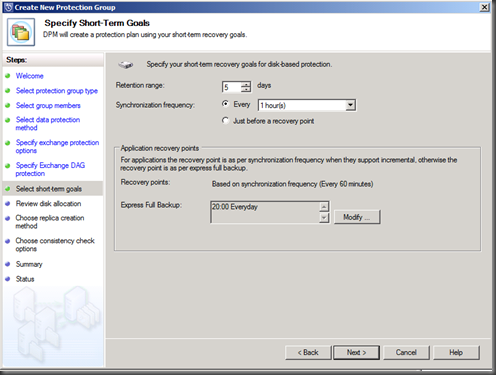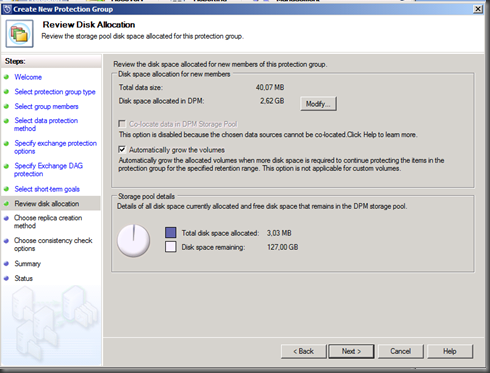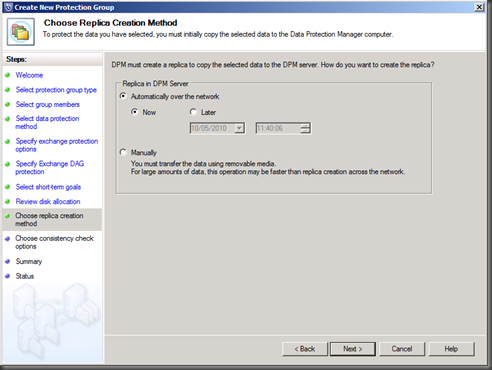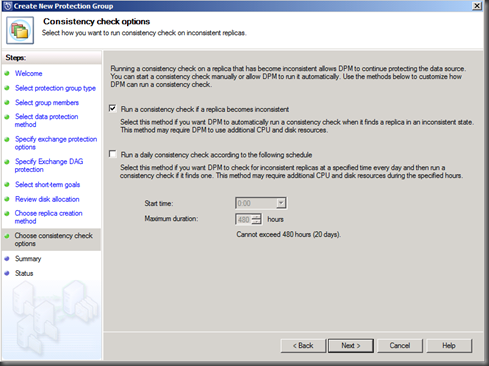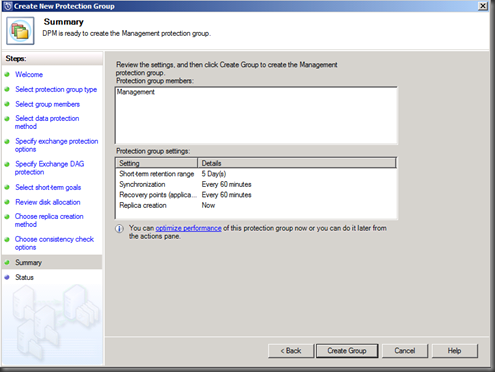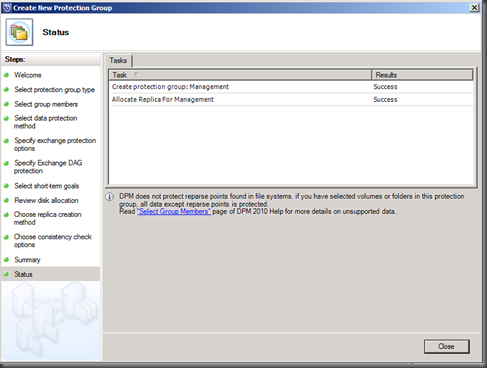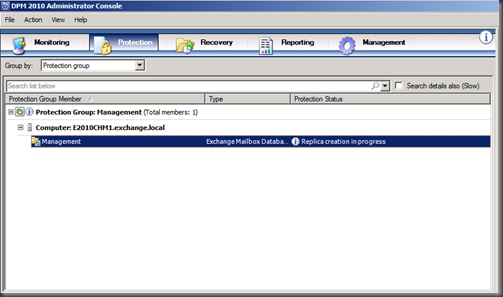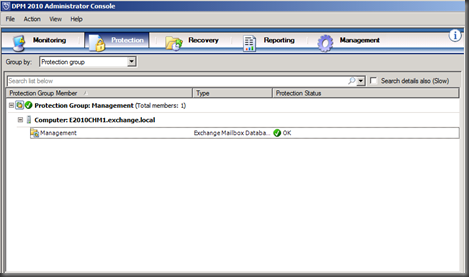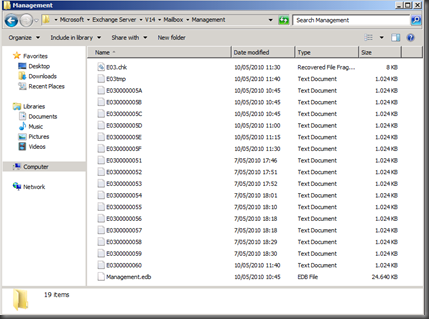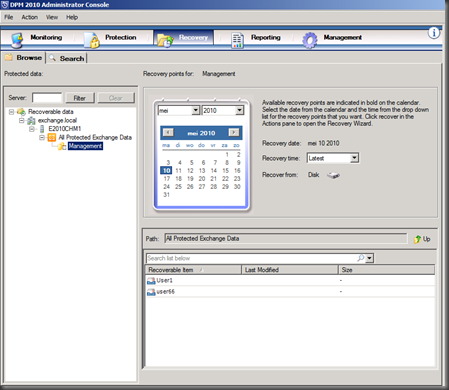using dpm 2010 to backup exchange 2010 DAG
System Center Data Protection Manager 2010 is here, and it (amongst all other features) enables you as an Exchange administrator to backup your Exchange 2010 environment, and DPM 2010 is DAG-aware!
Let’s see…
After installing SCDPM2010, I need to deploy a DPM agent. In my current Exchange organization, I have created a DAG, called DAG1, too which two Exchange 2010 mailbox servers belong, being E2010CHM1, and E2010MU2.
When I select the option to install an agent in the DPM Administrator Console, DPM will prompt me that there is a cluster found :-)
DPM detected that you have selected servers that are nodes of a server cluster. You have not selected other nodes that belong to the same server cluster. However, if the nodes are part of a Exchange 2010 DAG you need not protect all DAG nodes.
You can protect nonclustered data in the selected nodes without installing protection agents on the other nodes.
What does this mean?
If you have a DAG configured, and if you only deploy a DPM agent on some of the DAG members, you will be able to backup any of the databases homed on those DAG members. But you will not be able to backup any database that are only homed on DAG members that haven’t got a DPM agent installed!
For example, in my deployment, I have a DAG, called DAG1, with two member servers. I have deployed a DPM agent on E2010CHM1, and not on E2010MU2. Databases are distributed as followed in my Exchange deployment:
When creating a new Protection Group, I will see the DAG, but I won’t be able to select any database which is homed only on E2010MU2. I will be able to select any database homed on E2010CHM1.
As can be seen in the print screen below, I can not see the mailbox database called BHV, since it is only homed on E2010MU2!
After selecting for example the Management database, I need to supply some more information, like a name for the protection group:
And then some specific Exchange information. DPM can run the Eseutil integrity check, thereby reducing the load on the Exchange server itself. DPM will check the integrity using Eseutil, and will inform Exchange afterwards about the status of the backup. DPM requires two files from Exchange in order to do this integrity check. You need to copy Ese.dll and Eseutil.exe from your Exchange server to the DPM bin directory, or you can install the Exchange management tools on your DPM server. I have chosen to copy the two files from my Exchange server to the DPM server.
Then there is specific question with regards to Exchange DAG Protection, you will need to assign your mailbox databases to either a Full Backup or to a Copy Backup. It is important to remember that you can only select one copy of a database for full backup, due to federated log truncation!
Specify your short term recovery goals…
Review the disk allocation…
Specify how you want DMP to create a replica of the data….
Define when you want consistency checks to run…
Review the summary…
And create the protection group…
Replication creation can begin…
And when done, you get a green OK :-)
And the files will be backed up on your selected drive:
And recovery can begin when and if needed :-)
Ilse
Comments
Anonymous
January 01, 2003
Steve, yes, if you have a DPM agent installed on Ex2010CHM1, you will be abe to backup the passive database ABC from Ex2010CMH1!Anonymous
January 01, 2003
Sander, Dutch is veel gezegd, Antwerpen is het juiste :-) IlseAnonymous
July 09, 2010
What how about if you have a scenario where Database "ABC" lives on EX2010MU2 and a copy lives on EX2010CHM1? Can you still backup the ABC database from EX2010CHM1 without an agent on EX2010MU2?Anonymous
July 19, 2010
Hi Ilse, Are you dutch ? I could use some more info about these products, can you give me a hand ?Anonymous
April 05, 2011
Thanks. The article is very successful and usefulAnonymous
July 06, 2011
Very Useful ! I did however found out after following your steps that DPM reports "Failed creation of recovery points" Eveything else seems ok and working any idea how to troubleshot these issues ? ThanksAnonymous
October 18, 2011
Is DPM intuitive enough to know which databases are Active and which are Passive - spread out over multiple E2K10 servers with multiple databases?Anonymous
November 04, 2011
Hi, I have followed the articel and run the Backup using DPM but I am having Issue where log files are still there and they are not yet truncated. Protetion status on Database is Ok. Please help. Regards, Farhan KhanAnonymous
January 24, 2012
I've come accross the same thing. I'm backing up a passive copy of a database on a 2 member dag, and both database servers are keeping the log files. I'm up to around 9000 logs so far.Anonymous
March 19, 2012
Carl, Read this blogs.technet.com/.../exchange-2010-log-truncation-and-checkpoint-at-log-creation-in-a-database-availability-group.aspxAnonymous
December 03, 2015
The comment has been removed

